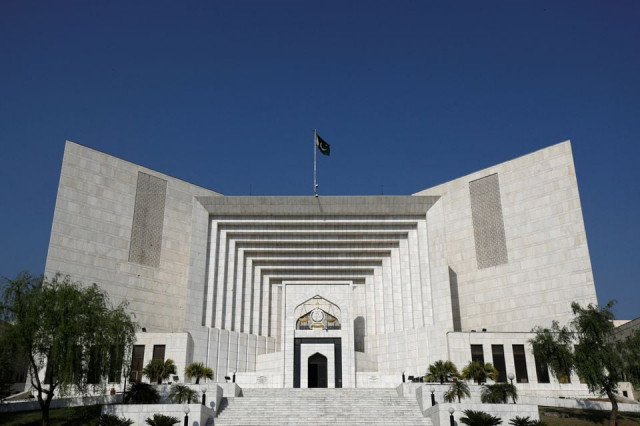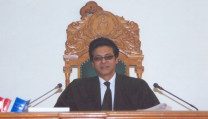SC judge recuses himself from hearing 'US conspiracy' cipher case
Justice Sardar Tariq Masood refers matter to CJP Bandial to fix hearing before another judge

Justice Sardar Tariq Masood of the Supreme Court (SC) on Tuesday recused himself from hearing petitions challenging the Registrar's Office's objections against petitions seeking an inquiry into the cipher associated with the alleged foreign conspiracy that PTI claims was behind Imran Khan's ouster from office.
The SC had fixed appeals against the Registrar's Office objections in petitions for an in-chamber hearing for January 24 (today).
However, the judge excused himself from hearing the petitions and referred the matter to Chief Justice Umar Ata Bandial requesting to fix it before another judge.
Previously, petitioner Naeem Ul Hassan through Azhar Siddique had filed a petition in the apex court, praying that a high-powered commission of inquiry should be constituted to hold inquisitorial proceedings with regard to the anti-state activities conducted by the respondent political parties through mala fide and abuse of power under the provisions of the Constitution and for committing sedition and treason against the democratically and legally elected government.
Read ‘It’s behind me’: Imran Khan takes a U-turn on ‘US conspiracy’ narrative
The respondents named in the petition included the Federation of Pakistan, Prime Minister’s Office, Ministry of Foreign Affairs, Ministry of Interior, Ministry of Defence, Ministry of Law, National Assembly Speaker, Election Commission of Pakistan, Federal Investigation Agency, PTI, PML-N, PPP, JUI-F, and MQM-P.
The petitioner had said that Imran had taken various measures to restore normalcy in the affairs of the state but local political parties had been “aiding and assisting extremism in the country”.
However, the registrar had returned the petition on the grounds that the petitioner had not pointed out what questions of public interest were involved with reference to fundamental rights.
“The ingredients for evoking extraordinary jurisdictions of this court under Article 184 (3) have not been satisfied.”
The registrar had also explained that the petitioner had not approached any other appropriate forum to resolve the issue or provided any justification for not doing so. Among the other reasons, the registrar said multiple misconceived prayers were made in the petition.



















COMMENTS
Comments are moderated and generally will be posted if they are on-topic and not abusive.
For more information, please see our Comments FAQ